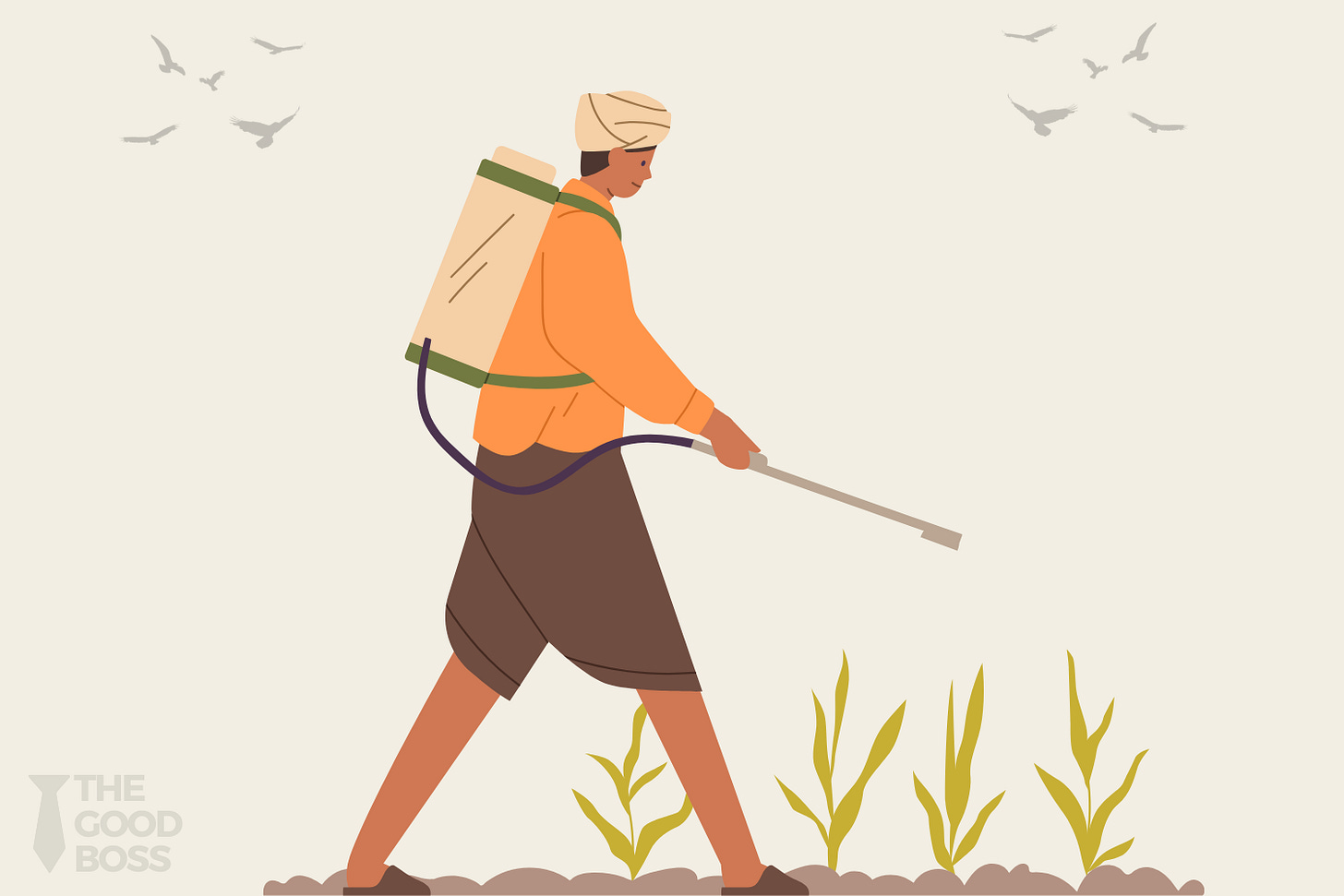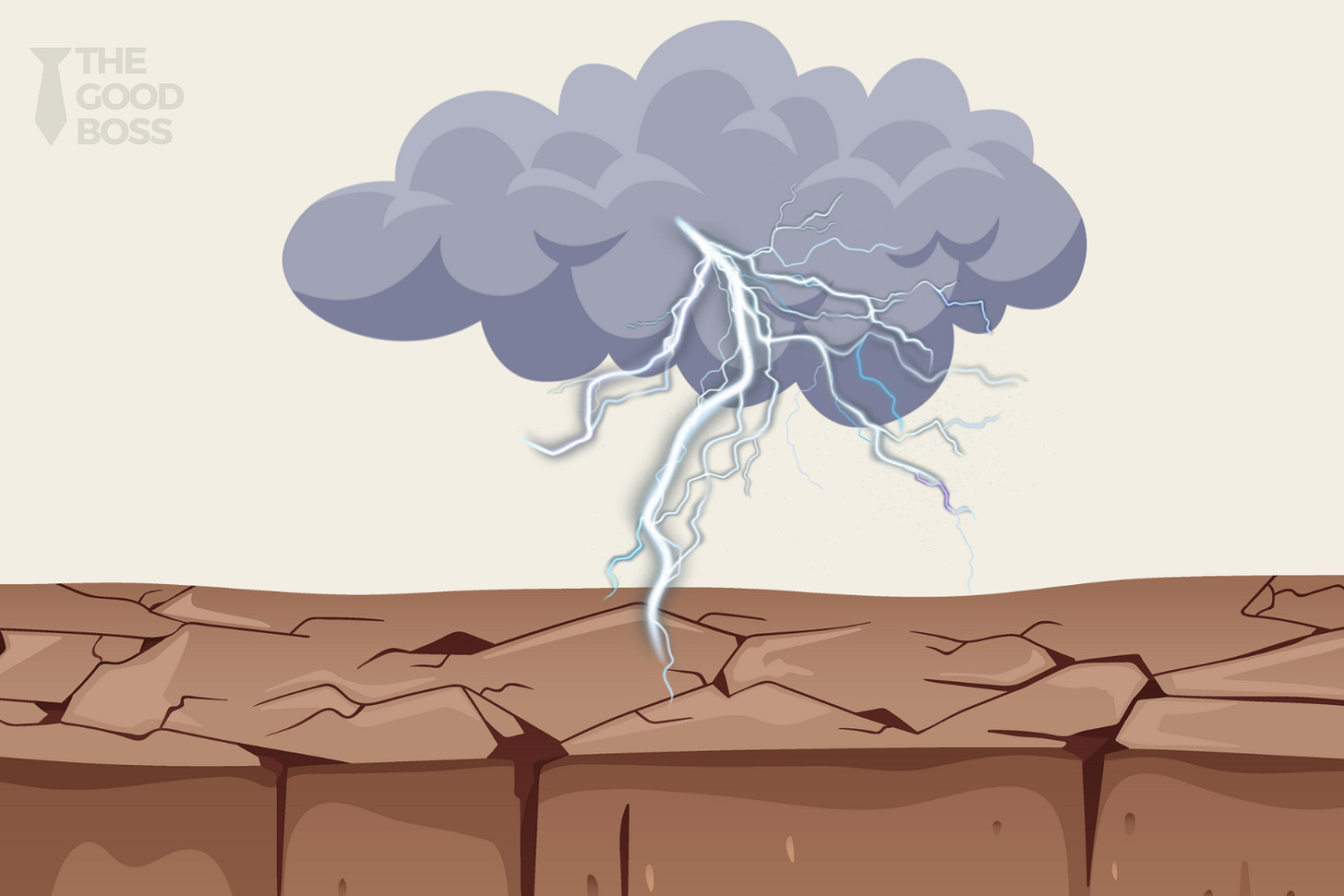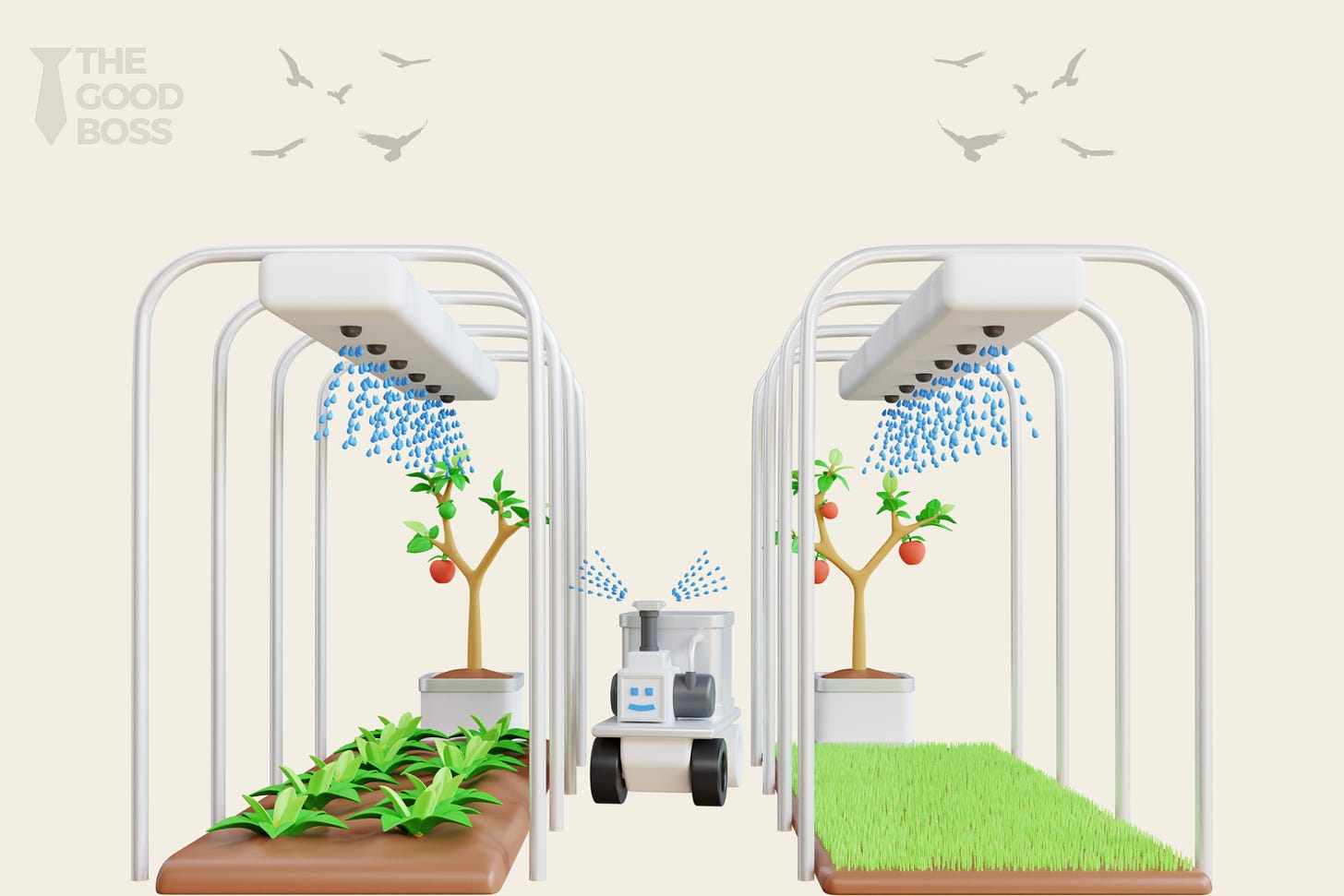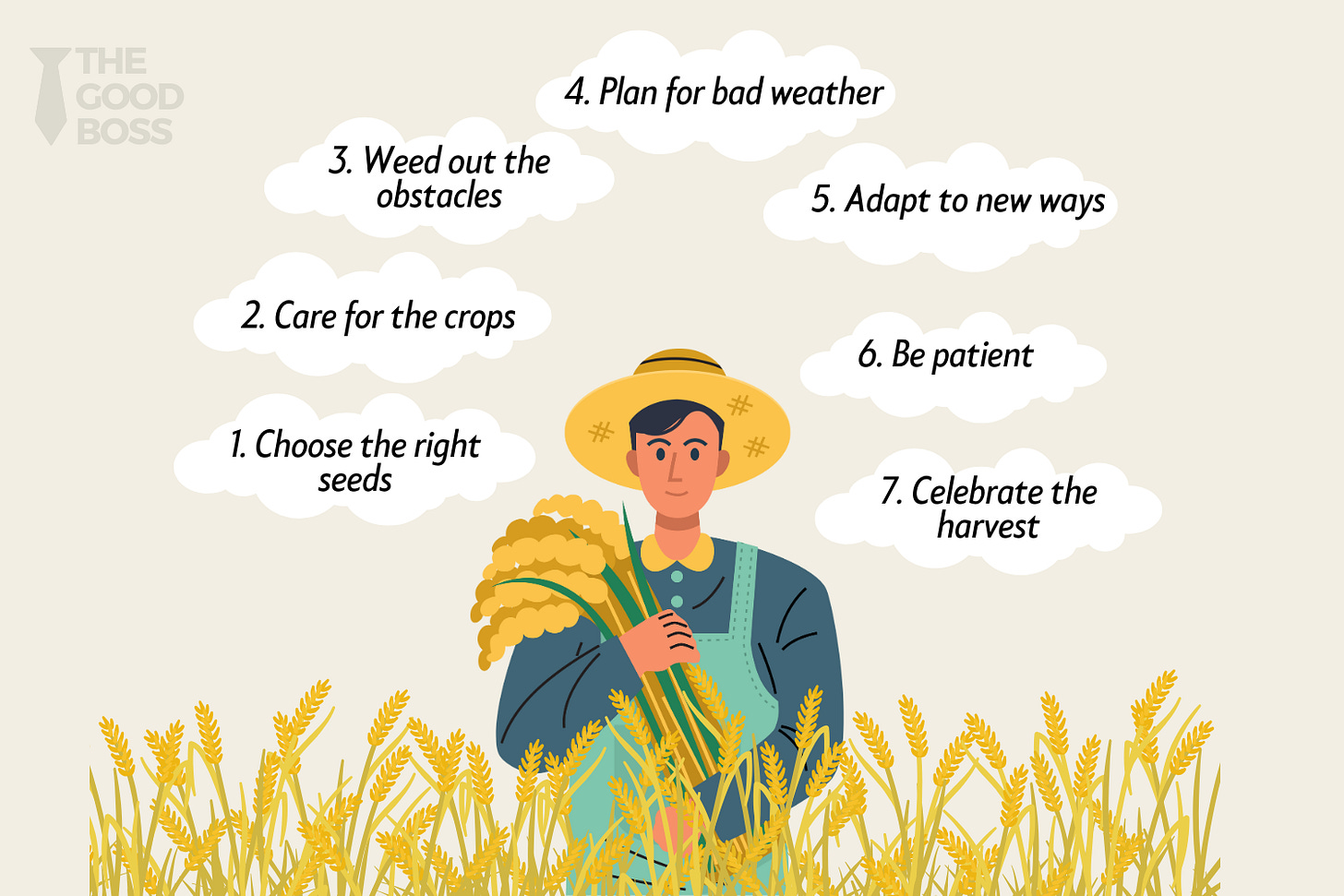Think Like a Farmer: 7 Powerful Leadership Lessons From The Farm
Plant, Nurture, Harvest: The Leadership Framework for Success
If you live in a dense, urban city like Singapore (like I do), having a front lawn or a backyard can be a bit of a luxury.
But chances are, you’ve grown a plant on your windowsill, helped your kids with a school garden project, or watched a grandparent tend to tulsi or orchids with care.
And while a farmer and a leader may seem like two very different roles, I’ve come to see that they actually have a lot in common.
In this article, I will discuss 7 powerful leadership lessons that we can learn from the farm, and why we should be thinking like a farmer to level up our leadership skills.
Lesson #1. Choose the Right Seeds
“You are where you are because of the people you chose to have on your team.” — Unknown
A farmer’s success depends heavily on the selection of the finest seeds. The seeds should not just be high quality, but also be tailored to match the specific soil, climate, and conditions of the farm.
Similarly, as discussed in 6 Hard-hitting Truths that Every Leader Needs to Face, your success as a leader depends on others. The choice of people you hire in your team will determine the kind of impact they will make, and ultimately determine your own success.
You should aim to hire the most talented individuals who are skilled in the field, who are passionate and energetic, and who “fit” in your organization.
There is no point in hiring a genius a$$hole.
So, next time you are on a hiring spree, put yourself in the shoes of the farmer who is going to buy seeds for their farm, and ask yourself: Who do you want to hire, and why?
Lesson #2. Care For The Crops
“Leaders is not about being in charge. It’s about taking care of those in your charge.” — Simon Sinek
For seeds to grow into crops, the farmers attentively tend to them, providing the nourishment such as water and nutrients for their optimal growth.
Similarly, as a leader, you need to provide your team with the resources and opportunities for growth. You need to coach them, mentor them, train them, and give them space to grow and flourish. In The 7 Habits of Highly Effective Leaders we discussed the critical role of empathy in high-performing teams.
Farmers fertilize the soil to ensure the crops get the maximum chance to grow. Similarly, you need to create an environment that promotes trust and belonging, and motivates your teams to give their best.
Just like a farmer ensures that each plant receives the necessary resources to thrive, you need to provide the resources and support to every single team member.
Lesson #3. Weed Out the Obstacles
“Weeding out the harmful influences should become the norm, not the exception.” — Carlos Wallace
Weeds are the enemy of a farm, as they choke the crops of the nutrients and energy they need to grow.
Farmers regularly look out for weeds, and continue to uproot them as they find them. They also monitor the infiltration by pests, rodents and other enemies of the crops and implement mechanisms to keep their farm free from them.
As a leader, your weeds are like the roadblocks that your team will face from time to time, and you should be looking to address them on a regular basis.
You should also be looking out for negativity, toxic behaviors, and inefficiencies as those can deplete the energy and bring down your team’s productivity. These are the naysayers, as discussed in Naysayers, Sayers, Doers: Spot the Real Heroes on Your Team.
So, just like a farmer, you should be looking out for the weeds and uproot them on a regular basis to keep your team the space to grow and thrive.
Enjoying the read? Hit the ❤️ button and share/restack 🔁 it with others who might find it helpful.
Subscribe to The Good Boss to get free articles like this every week. Consider becoming a paid subscriber to support my work, and get access to a host of premium leadership resources. Thank you! 🙏
Lesson #4. Plan for Bad Weather
“We could all take a lesson from the weather. It pays no attention to criticism.” — Unknown
Farmers face risks such as unpredictable weather patterns, from the sudden occurrence of heat waves to the onslaught of floods, and they need to manage these risks and uncertainties.
As discussed in The Animal Risk Matrix: How to Spot, Prioritize, and Manage Risks Like a Pro, leaders face uncertainties and risks of varying degrees and must have strategies to mitigate those risks.
Farms cannot control the weather, and they recognize that there will be seasons of abundance and seasons of scarcity.
Similarly, as a leader, you should be prepared to weather the storms, and be ready to capitalize on the opportunities that present themselves.
Just like a farmer, you need to be resilient, and be ready to face any challenge that is presented to you and your teams.
Lesson #5. Adapt To New Ways
“Adapt or perish, now as ever, is nature’s inexorable imperative.” — H. G. Wells
Farming today is very different from farming 50 years ago. With the advancement of technology and automation, modern farming techniques are more efficient and cost-effective.
Skilled farmers do not turn a blind eye to them, and instead embrace them with open arms. They understand the importance of adaptability, and are conscious of the need to change their ways in order to remain relevant.
Similarly, as a leader, you are faced with changing customer behaviors, stiffening competition, and technological disruptions.
And did someone mention AI?
In order to be successful, you need to be flexible enough to embrace the change, and adopt an agile mindset that allows you and your team to adapt quickly to changing circumstances. In Death of The Iron Triangle: Why Everything You Know About Cost, Time, and Scope Is Wrong, we discussed how you need to shift your mindset towards value-driven agile delivery.
Just like a farmer, you should be at the forefront of innovation, and adapt to changing circumstances.
Lesson #6. Be Patient
“When you reach the end of your rope, tie a knot in it and hang on.” — Thomas Jefferson
It can take weeks, months, and at times years for a plant to grow into its full bloom. Many plant lovers are faced with this rude shock when they try their hands at growing plants for the first time. I faced this myself when I first tried planting my first sapling (I lost patience within a few days).
Farming requires patience, and farmers understand the value of waiting, nurturing, and cultivating before reaping the rewards.
Similarly, as a leader, you need to be focused on the long-term goals for your team, and be patient with short-term setbacks and roadblocks. You need to allow your teams to “fail fast”, as long as they are learning and improvising for the long term. In The Four Zones of Psychological Safety: Where Does Your Team Sit? we discussed the importance of psychological safety, and how it can provide your teams the space to innovate.
Just like a farmer needs to wait patiently before they see the seeds sprout and be “visible”, as a leader you need to give your team the time and space to grow. You should avoid the urge to force your way, just like a farmer would avoid uprooting prematurely.
Lesson #7. Celebrate the Harvest
“Treat employees like they make a difference, and they will.” — Jim Goodnight
Harvest marks the ultimate milestone for farmers, the culmination of their efforts, and serves as inspiration for them to keep going. The harvest season is celebrated around the world, and there are a number of global festivals, across cultures, to mark this celebration.
Similarly, as a leader, you should make it a point to celebrate the key milestones, from smaller team milestones to bigger customer releases.
These milestones are opportunities for you to express gratitude, acknowledge your team’s contributions, and remind them of the shared goals.
Regular recognitions and celebrations of key achievements can go a long way in inspiring the teams to continue driving towards your organizational objectives. If you fail to recognize your team, they may secretly start hating you for it! (check out 10 Reasons Your Team Secretly Hates You if you’re curious).
Just like a farmer, you should celebrate the successes, and keep the momentum as the team marches towards the next milestone.
In Summary: 7 Powerful Leadership Lessons From The Farm
While leaders and farmers may seem like very different roles, in this article, we drew some striking parallels between effective leaders and skilled farmers.
In particular, we discussed 7 leadership lessons that leaders can learn from farmers:
Choose the Right Seeds. Just like a farmer chooses the finest seeds that are most appropriate for the soil and weather conditions, a leader should hire the right people who are the best fit for their organization.
Care for the Crops. Just like a farmer nourishes and provides the necessary care for the crops to grow, a leader should provide the mentorship and support to their teams for optimal growth.
Weed Out the Obstacles. Just like a farmer looks out for weeds and continues to uproot them to avoid choking their crops, a leader should look out for obstacles that their team faces, and help to tackle them.
Plan for Bad Weather. Just like a farmer plans for the bad seasons and the good seasons, a leader should be ready to face uncertainties and risks, and also capitalize on opportunities that present themselves.
Adapt to New Ways. Just like a farmer adapts to modern approaches to farming, a leader should embrace changing customer behaviors and new technological advances in order to remain relevant.
Be Patient. Just like a farmer understands the value of waiting, nurturing, and cultivating before reaping the rewards, a leader should exercise patience and give their teams the room to “fail fast”, while remaining focused on long-term goals.
Celebrate the Harvest. Just like a farmer marks the harvest season with festivals and celebrations, a leader should celebrate those milestones to recognize the contributions of the team, and to inspire them to keep going.
“It isn’t the farm that makes the farmer — it’s the love, hard work, and character.” — Unknown
So, next time you need some leadership inspiration, don’t forget to think like a farmer.
Which of the lessons inspired you the most? Let me know in the comments below! 👇
Other posts you will enjoy
🛠️ The Ultimate Leadership Toolkit Bundle
Ready to take your leadership to a whole new level? Unlock the full power of the best leadership frameworks and tools with The Ultimate Leadership Toolkit Bundle!
👉🏼 Limited time offer: Grab your copy of the bundle at 25% off (use the coupon code LOYAL25 at checkout).
🎁 Paid members: Claim FREE access to the bundle (worth $210+) by using the exclusive coupon code mentioned on this page. Not a paid member? You can upgrade here.
👋🏻 Connect with me on LinkedIn.
PS: If you’re enjoying The Good Boss, will you take 2 seconds and hit the ❤️ button and share/restack 🔁 it with others who might find it helpful? It goes a long way in helping me grow the newsletter. Thank you!
Subscribe to The Good Boss for free articles like this every week. Consider becoming a paid subscriber to support my work, and get access to a host of premium leadership resources.

















This metaphor works so well because it’s grounded in what leadership often forgets: growth has seasons.
Indeed, I call it the Gardner leader in my blog